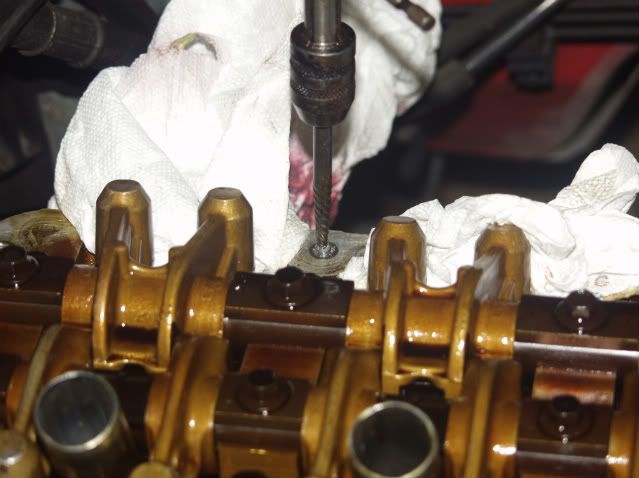There a few things I'd like to add to my arsenal: changing a clutch, cv axles, drum brakes and Broken bolts. I think broken bolts would be the easiest next process as it only requires what I guess to be minimal steps and minimal tools needed.
A few weeks ago I rounded off the head to a bolt on the exhaust of my dirtbike when trying to service the spark arrestor. I was using a 8mm and got 2 of the 3 bolts out no problem then rounded off the third and found out it was a 5/16. really?, a STD on a metric bike...I still don't understand. Anyway,
Can anyone help me achieve this skill? A few years ago I was changing the thermostat in my Dakota and was really straining on getting one of the bolts out and then it just kept getting easier and easier until it snapped. Me and my friend bought what seems like every drill bit at the hardware store and still had no luck. We had to put it on a trailer and take it to my dad's friend's house and he got it out without damaging the threads as the new bolt went in no problem.
Is this something a simpleton like myself can perform? What are the processes and what tools will I need to get various sized fasteners out after rounded off, head broken and/or seized.
Also, on my exhaust I chewed up the head beyond recognition and grinded it off to get at the spark arrestor. After you snap the head off is there still torque in the threads. What I mean, is do the threads hold the torque or the head of the bolt? thanks
A few weeks ago I rounded off the head to a bolt on the exhaust of my dirtbike when trying to service the spark arrestor. I was using a 8mm and got 2 of the 3 bolts out no problem then rounded off the third and found out it was a 5/16. really?, a STD on a metric bike...I still don't understand. Anyway,
Can anyone help me achieve this skill? A few years ago I was changing the thermostat in my Dakota and was really straining on getting one of the bolts out and then it just kept getting easier and easier until it snapped. Me and my friend bought what seems like every drill bit at the hardware store and still had no luck. We had to put it on a trailer and take it to my dad's friend's house and he got it out without damaging the threads as the new bolt went in no problem.
Is this something a simpleton like myself can perform? What are the processes and what tools will I need to get various sized fasteners out after rounded off, head broken and/or seized.
Also, on my exhaust I chewed up the head beyond recognition and grinded it off to get at the spark arrestor. After you snap the head off is there still torque in the threads. What I mean, is do the threads hold the torque or the head of the bolt? thanks


